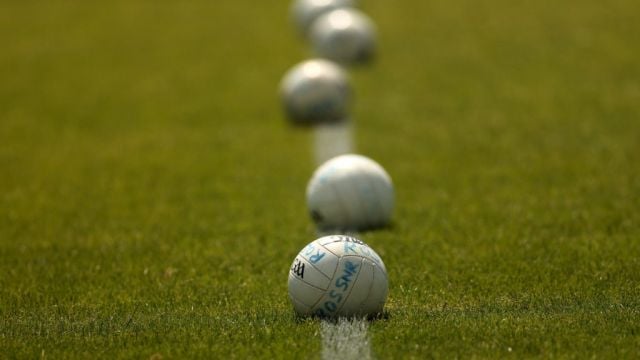One in five former male intercounty GAA players claim they were forced to retire due to a significant knee injury, while seven out of 10 said they had suffered at least one severe knee injury during their playing career, according to new research.
The study by researchers in sports medicine also revealed that 40 per cent of former elite players reported needing knee surgery since retiring from playing sport.
In addition, more than half of all retired GAA players (51 per cent) had undergone knee surgery during their intercounty career with 19% having had three or more operations.
The findings of the study, which are published in the Irish Journal of Medical Science, has highlighted how knee injuries are a common reason behind reduced performance by GAA as well as retirement from playing the sport.
The research said it also showed how severe knee injuries were potentially associated with worse health-related outcomes, such as early-onset knee osteoarthritis, for former players after their intercounty career was over.
The study analysed the responses of 100 former GAA intercounty players who had an average age of 37.4 years.
Of 68 participants who completed the survey in full, 47 had played senior Gaelic football and 20 had played senior hurling with one dual intercounty former player.
On average, retired players had started playing senior intercounty matches when they were 19.7 years, played for eight seasons and had retired from GAA sports for 10 years at the time of the survey.
A severe knee injury was defined as any injury to the knee joint which occurred during training or a match and resulted in an absence of playing GAA for more than 28 days.
More than half of the respondents (54 per cent) said they did not feel that they returned to their previous level of performance after suffering a knee injury, while 56 per cent stated they believed their physical health had been impacted as a result of a knee injury.
The study revealed a low level of medication use by the group of retired GAA players with two-thirds claiming they had not used either prescription or over-the-counter pain medication.
Based on a self-assessed measure of the impact of a knee injury, the research’s findings suggested that physical knee function was lower in those with a history of severe knee injury and/or previous knee surgeries.
The authors of the study said understanding the prevalence and burden of knee pain among former elite male GAA players may lead to improved injury prevention efforts and robust injury management as well as promoting individualised medical after-care for retired athletes.
They noted that there are established GAA-specific injury prevention exercise programmes (IPEPs) which have been shown to be effective at reducing lower extremity injuries and improving neuromuscular control.
However, they pointed out that previous research had highlighted how awareness of and compliance with IPEPs remains low among GAA players.
The study noted that while the finding that one-fifth of former players retired from intercounty GAA due to a significant knee injury might appear high, some other sports demonstrate even higher figures with over half of retired soccer players stating a knee injury was why they stopped playing sport.
It said the findings showed the negative impact of knee injuries on the career of sportspeople was “not a GAA-specific issue.”
“Nevertheless, efforts should be made to ensure injured GAA players have access to appropriate care and are guided through robust evidence-based rehabilitation programmes which facilitate their safe return to their previous level of performance,” it added.

One of the study’s main authors, Seán Carmody of the Amsterdam University Medical Centre in the Netherlands said there was a research gap in the area of examining health outcomes in retired GAA players.
“While this limited understanding of the health of the retired GAA player persists, it is difficult to provide evidence-based recommendations for how to support them post-retirement,” said Mr Carmody.
The study said retired players who suffered significant knee injuries would be likely to benefit from programmes aimed at mitigating the effect of osteoarthritis.
It also recommended further research into the area, particularly among retired female GAA players.







